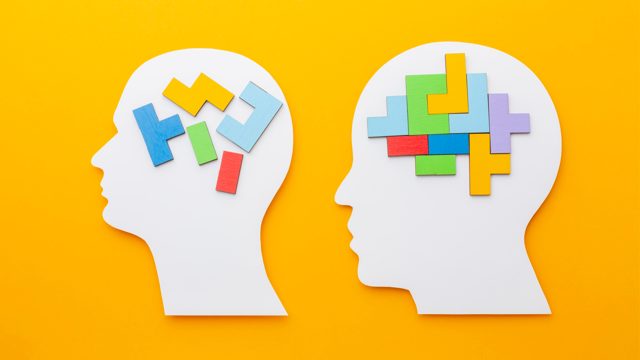15 HIV Symptoms You Should Be Aware Of
Human Immunodeficiency Virus (HIV) is a life-threatening virus that attacks the body's immune system, specifically the CD4 cells. Early detection of HIV is crucial for managing the virus.
Here, we delve into 15 symptoms of HIV to look out for. The Human Immunodeficiency Virus, commonly known as HIV, is a potent and life-threatening virus that primarily targets and wreaks havoc on the body's immune system - most notably, the CD4 cells. These cells are a type of white blood cell that play a vital role in protecting our body from various infections. When the HIV virus infiltrates these cells, it weakens the immune system, leaving the body vulnerable to a myriad of diseases - a condition that can have serious, even fatal, consequences if not appropriately managed. Therefore, early detection of HIV is absolutely crucial.

It is paramount to identify the presence of the virus at the earliest stage possible to implement effective management strategies, which can significantly improve prognosis and quality of life. By ensuring timely intervention, the progression of the disease can be controlled, and the individual can lead a relatively normal and healthy lifestyle.
In the following section, we delve into an in-depth exploration of 15 symptoms of HIV that everyone should be aware of. Understanding these symptoms is essential as it aids in early detection, and can potentially save lives. These symptoms may range from fever and fatigue to more severe signs like unexplained weight loss or prolonged swelling of the lymph nodes. So, let's embark on this journey of knowledge and awareness together, as we unpack these symptoms, their implications, and the steps you can take if you or a loved one experience them.
1. Fever
Fever is usually the first symptom of HIV, as the body naturally tries to fight off the virus. It's often accompanied by other mild symptoms such as fatigue, swollen lymph nodes, and sore throat.
Fever is typically the initial symptom that manifests when an individual contracts HIV, serving as an immediate physiological response as the body attempts to combat the viral invasion. This increase in body temperature is a clear signal that the body's immune system is engaging in a fierce battle against the foreign entity. It's a silent but potent alarm that something isn't quite right within the body's internal environment and is often a precursor to more evident signs of the disease. Alongside fever, other seemingly innocuous symptoms often accompany the onset of HIV, subtly hinting at the gravity of the underlying condition. One such symptom is fatigue, a pervasive sense of tiredness and lack of energy, which can be easily dismissed as a result of a busy lifestyle or daily stress. Nonetheless, when it persists even with adequate rest, it may indicate the body's continuous struggle against the HIV virus, draining the individual's energy reserves. Swollen lymph nodes are another common symptom seen during the early stages of HIV.

These are small, bean-shaped glands throughout the body that produce and store cells that fight infection and disease. They may swell in response to infections or diseases, including HIV.
Their swelling is a physical manifestation of the body's defense system working overtime to protect the body from the virulent onslaught of the virus. Lastly, a sore throat is another symptom that often accompanies the onset of HIV. It might seem like a simple discomfort, an offshoot of a common cold or dry weather perhaps, but in the context of HIV, it's another piece of the puzzle. It might be the body's response to a general weakening of the immune system, struggling to fend off even minor infections. Hence, while these symptoms might seem mild and easy to overlook in isolation, collectively they form an alarming picture, indicating the possibility of a serious underlying condition like HIV. It's crucial to understand these signs and seek medical counsel at the earliest to ensure prompt diagnosis and treatment.
2. Swollen Lymph Nodes
Lymph nodes are part of the body's immune system. When they're swollen, it's a sign that the body is fighting off an infection.
In the case of HIV, the lymph nodes in the armpits, groin, or neck may swell. Lymph nodes, those small bean-shaped structures scattered throughout the body, play a pivotal role in our immune system, serving as the frontline of our body's defense mechanism. They are our body's microscopic security guards, screening everything that goes in and out, and when they detect something harmful, they react, often resulting in swelling. This swelling is akin to a red flag, indicating that your body is currently embroiled in a battle against an infection or disease. In the case of conditions like HIV, the lymph nodes located in specific regions of the body, such as the armpits, groin, or neck, may experience this swelling. It's important to understand that these specific nodes are not randomly selected; they are typically the nodes nearest to the infection site, swelling up like soldiers preparing for battle.

They work tirelessly, processing the harmful cells in an attempt to protect the body from further harm. However, it's crucial to remember that swollen lymph nodes can be indicative of other health issues as well.
While it's true that HIV can cause this symptom, so can a common cold or an ear infection. Ultimately, the key is to listen to your body. Whenever you notice such changes, it's prudent to consult with a healthcare provider to get a clear understanding of what's going on. This proactive approach can ensure that whatever battle your body is fighting doesn't go unnoticed, and necessary medical interventions can be taken at the right time.
3. Sore Muscles
HIV can cause muscle soreness and joint pain. These aches can be caused by the inflammation in the tissues or your immune system’s response to the virus.
HIV, a life-altering virus, can often manifest itself in ways that are not immediately recognizable, such as muscle soreness and joint pain. These symptoms may seem common and mundane, but in the context of HIV, they take on a whole new level of significance. The muscular discomfort that one might experience can range from a mild stiffness to debilitating muscle soreness, making even simple daily tasks a challenge. This is because HIV can cause inflammation in the tissues, leading to these aches and pains. The inflammation is a result of the body's response to the virus, attempting to fight off the infection but simultaneously causing discomfort. Additionally, the joint pain associated with HIV is equally distressing. Joint pain can be intermittent or constant, and it may severely impact an individual's quality of life.

This pain is not a direct result of the virus itself but rather your immune system’s response to the virus. The immune system, in its effort to combat the virus, can sometimes overreact and inadvertently cause inflammation and pain in the joints.
This is a classic case of the body's defense mechanisms ironically contributing to discomfort. Understanding these symptoms and their causes can lead to better management of HIV. Awareness and education about the virus can help individuals seek early treatment and potentially lessen the impact of these symptoms. It's important to remember that while these symptoms may seem insignificant at first, they might be indicative of a much larger issue – the presence of HIV. Therefore, timely medical advice and intervention are crucial.
4. Pain in the Joints
As with sore muscles, joint pain can be a symptom of HIV. This can range from a slight discomfort to severe pain.
Just as sore muscles can indicate a variety of health conditions, joint pain can also be a symptom of HIV. It's important to understand that this discomfort can manifest in a myriad of ways, varying from a slight nuisance to a debilitating agony that can significantly hinder one's daily activities. Joint pain, in the context of HIV, is often an overlooked symptom, yet it's an integral part of the overall health picture that should not be disregarded. This joint pain can be quite inconsistent, sometimes appearing as a dull ache, other times as a sharp, intense pain. It can affect various parts of the body, ranging from the small joints in the fingers to larger joints like the knees or hips.

Moreover, the discomfort can either be persistent or intermittent, further complicating its identification as a symptom of HIV. In light of varying degrees of severity, it is crucial to pay attention to your body and seek medical advice when necessary.
Being aware of these potential warning signs can lead to early diagnosis and treatment, resulting in better management of the condition. Chronic joint pain associated with HIV can be managed with medication, physical therapy, and lifestyle adaptations, among other methods. Thus, understanding the link between joint pain and HIV is vital for anyone living with the disease or those at risk.
5. Rashes or Bumps on the Skin
Skin rashes or bumps are common in people with HIV. These may appear and disappear, and can occur anywhere on the body.
Skin rashes or bumps, a common symptom experienced by individuals living with HIV, may seem like an ever-changing landscape on the skin. These blemishes, whether persistent or transient, can pop up and fade away, presenting a varying array of patterns over time. They are not confined to a particular area but may manifest anywhere on the body, from the face and neck to the arms and legs, creating an unpredictable pattern that can be both surprising and concerning. These rashes or bumps, while common, should not be brushed aside or ignored, as they are often indicative of the immune system's struggle against the virus.

Consequently, they can serve as an early warning sign for potential complications, acting as a barometer of sorts for the individual's overall health status. Therefore, it's crucial to pay attention to these changes and seek professional medical advice when they occur.
Moreover, these skin complications not only affect the physical health of the individual but can also have a profound impact on their emotional well-being. The visibility of these skin issues can lead to heightened self-consciousness or stress, further emphasizing the importance of understanding and managing this common symptom. With the right knowledge and medical guidance, it's possible to navigate these skin-related challenges, enabling those living with HIV to lead healthy and fulfilling lives.
6. Ulcers in the Mouth
Mouth ulcers are quite common in people with HIV. These ulcers can be painful and may make eating and drinking uncomfortable.
Mouth ulcers, also known as canker sores, are a persistent issue that often affects individuals living with HIV. They appear as painful, open wounds inside the mouth, creating discomfort and hindering daily activities such as eating and drinking. The occurrence of these sores isn't a rare phenomenon in people battling this immune-compromising disease, and unfortunately, they can cause significant distress. These ulcers can manifest as single or multiple sores, typically characterized by their round or oval shape and their white or yellowish center surrounded by a defined red border. The pain they inflict can range from a mild, annoying sting to severe discomfort, which can be especially bothersome while consuming food or beverages.

Spicy, acidic, or hard, crunchy foods can particularly exacerbate the discomfort, making meal times a daunting challenge for many. While mouth ulcers are generally not harmful themselves, they can negatively impact the quality of life for people with HIV.
They may also indicate an underlying issue, such as a weakened immune system, necessitating the need for medical attention. A healthcare provider can recommend suitable treatments to alleviate the pain and expedite the healing process. Home remedies like rinsing with salt water or over-the-counter treatments can also provide temporary relief. Thus, while common, mouth ulcers in people with HIV should not be overlooked and must be addressed promptly and effectively.
7. Ulcers on the Genitals
HIV can also cause ulcers on the genitals. These sores are often painful and may make sexual activity uncomfortable.
While HIV is primarily known for its debilitating impact on the immune system, it also manifests in less commonly known, yet equally distressing ways. One such manifestation is the cause of ulcers on the genitals. These sores, which can occur in both men and women, are not just mere physical discomforts. They often come with a sharp, throbbing pain, making any form of contact excruciating, and thus, making sexual activity an overwhelmingly uncomfortable experience. The pain is not the only issue.

These ulcers, acting as open invitations to infections, aggravate the already weakened immune system of the patient. They can also lead to psychological distress due to the constant discomfort and the potential impact on one's sexual life, making the patient feel isolated and anxious.
Moreover, the presence of these sores may also increase the risk of transmitting the virus to a non-infected partner during sexual activity, adding another layer of worry for the patient. Therefore, it's crucial to understand that HIV's impact extends beyond what's typically recognized, making the battle against this disease even more complex and demanding. The acknowledgment and management of these related symptoms is a significant step in ensuring a comprehensive care approach for individuals living with HIV.
8. Weight Loss
Unexplained weight loss can be a sign of HIV. This can occur regardless of eating habits.
Unexplained weight loss, often a perplexing and distressing occurrence, can be an indication of a more serious health condition like HIV. This can happen regardless of one's dietary choices or eating habits, making it even more mystifying for individuals experiencing this symptom. HIV, otherwise known as the Human Immunodeficiency Virus, has a variety of symptoms and one of the most prominent is unanticipated weight loss. This occurs as the virus infiltrates the immune system, impacting the body's ability to absorb nutrients effectively.

Consequently, even if an individual maintains a regular, balanced diet, they may still experience significant weight loss due to the body's inability to capitalize on the nutrients ingested. It's important to note that this symptom should never be overlooked or dismissed.
If you or someone you know is experiencing unexplained weight loss, it's crucial to seek medical advice promptly. This weight loss could be a sign of HIV or other underlying medical conditions. Timely diagnosis and intervention could make all the difference in managing the condition and improving overall health.
9. Night Sweating
People with HIV often experience night sweats. This can be so severe that it drenches your bed sheets, and is not related to the room temperature.
People living with HIV frequently encounter the distressing issue of night sweats. This is not a mild inconvenience, but rather a severe occurrence that has the potential to disrupt their sleep and overall quality of life. The intensity of these night sweats can be such that it completely drenches their bed sheets, leaving them not only uncomfortable but also unable to rest properly. This is a phenomenon that can occur even in the most optimal room temperatures, indicating that it is not a result of an overly warm environment, but rather a symptom associated with the condition itself. Moreover, these night sweats can compound the existing physical and emotional challenges being faced by those living with HIV.

It's crucial to understand that they are not a sign of weakness but a testament to the strength and resilience of the human body as it fights against the virus. The occurrence of night sweats is a sign that the body is actively working to combat the HIV infection, serving as a reminder of the body's ongoing battle.
In conclusion, the occurrence of night sweats in individuals with HIV is a significant issue that goes beyond mere discomfort. It's a testament to the body's relentless fight against the virus, regardless of the environmental conditions. Therefore, it is crucial to provide understanding, support, and appropriate medical care to those experiencing this challenging symptom.
10. Nausea or Vomiting
Nausea or vomiting can be a symptom of HIV. This can lead to a loss of appetite and unintentional weight loss.
Nausea or vomiting, somewhat common yet often overlooked, can indeed serve as potential indicators of HIV. This physical reaction, characterized by discomfort in the stomach followed by an involuntary urge to vomit, can often be disconcerting and uncomfortable. This is not an uncommon symptom, but it can be a significant clue when it comes to identifying the presence of HIV. Moreover, this nausea and vomiting can lead to a more serious issue - a diminished desire to eat. The distressing sensation in the stomach can deter people from consuming their regular meals, leading to a loss of appetite.

This loss of appetite, if left unchecked, can have a domino effect on the overall health. The body, deprived of the essential nutrients it needs to function optimally, might start to weaken, thereby reducing the body's ability to fight off infections and diseases.
Additionally, this can result in a side effect that's hard to ignore - unintentional weight loss. Without the necessary caloric intake, the body might start to use up its stored energy, resulting in a noticeable decrease in weight. This is not a desired effect as it can lead to malnourishment and other health complications if not addressed promptly. Thus, it is crucial to seek professional medical advice when such symptoms manifest, as they could indicate the presence of HIV or other serious health conditions.
11. Diarrhea
Chronic diarrhea is a common symptom of HIV. It can be severe and lead to dehydration.
Chronic diarrhea is not just an inconvenient discomfort, but a common, often debilitating symptom of HIV. This condition can manifest persistently, plaguing the patient with frequent, loose, and watery stools. It's not just the frequency that can be worrisome, but also the intensity. In severe cases, it can rapidly drain the body of fluids, leading to dehydration, a state that can be dangerous if not addressed promptly. Dehydration, in turn, takes a toll on the body, sapping strength and vitality, making even the simplest daily activities seem like insurmountable tasks.

Additionally, chronic diarrhea, as a symptom of HIV, may be an indicator of the progression of the disease or a side effect of the medication used for its treatment. It's a symptom that highlights the importance of comprehensive medical care and regular check-ups for those living with HIV.
Regular medical supervision can help manage this troublesome symptom, ensuring that it does not significantly affect the patient's quality of life. In conclusion, while chronic diarrhea may seem like a minor concern, when viewed in the context of HIV, it becomes a significant health issue that warrants attention and care. It's an aspect of living with HIV that emphasizes the importance of a holistic approach to manage the disease, helping those affected maintain their health and continue living fulfilling lives.
12. Fatigue
People with HIV often feel fatigued. This is a persistent, overwhelming feeling of exhaustion that doesn't get better with rest.
Individuals diagnosed with HIV often grapple with an unrelenting sensation of fatigue. This is not your ordinary kind of tiredness. It's an all-consuming, persistent feeling of exhaustion that can permeate every aspect of their lives. Daily activities they once took for granted, from household chores to socializing with friends, can become daunting tasks. This fatigue, frustratingly, doesn't ameliorate with rest or a good night's sleep. It clings on stubbornly, almost as if it has become an integral part of their existence. Moreover, this constant weariness can have a profound impact on their emotional wellbeing. The continuous battle with fatigue can lead to feelings of frustration, anxiety, and even depression.

It can chip away at their resilience, make them feel isolated and misunderstood, and generate a sense of helplessness. But it's important to remember that they are not alone in this journey.
There are numerous resources and support networks available to help them navigate through these challenging times. In addition, it's important to note that this fatigue can be managed. With a combination of lifestyle changes, medical treatment, and emotional support, it's possible to mitigate the severity of this symptom. They may not be able to completely eliminate their fatigue, but they can certainly regain control over their lives, reduce the symptom's impact, and enhance their overall quality of life. After all, living with HIV doesn't mean they should resign themselves to a life of constant fatigue. They have every right to lead fulfilling, active lives, and they should never hesitate to seek help when needed.
13. Pneumonia
People with HIV are more susceptible to infections, including pneumonia. Recurring pneumonia could be a sign of HIV.
Individuals who are diagnosed with HIV often find themselves more vulnerable to a number of infections, and among these, pneumonia is a predominant concern. This vulnerability primarily stems from the fact that HIV compromises their immune system, making their body a more receptive host for various opportunistic infections. Pneumonia, a severe lung infection that results in inflammation and fluid build-up, can pose serious health risks to these individuals. It can cause a range of symptoms from persistent cough and high fever to difficulty in breathing. However, it's important to note that pneumonia is not just an ailment that an HIV patient might contract, but it could also be an indicator of the presence of HIV in an individual's system.

Recurrent bouts of pneumonia, especially in otherwise healthy individuals, could be a telltale sign of a compromised immune system, which is a hallmark of HIV. This can be particularly relevant in cases where standard treatments for pneumonia are found to be ineffective, signaling a deeper underlying health concern.
In conclusion, there's an undeniable link between HIV and pneumonia. Those with HIV are not only more susceptible to contracting pneumonia, but regular occurrences of this lung infection could also point towards the possibility of an HIV infection. Therefore, it is crucial for individuals to be aware of this link and seek prompt medical attention in case of recurrent pneumonia or other persistent infections.
14. Memory Problems
HIV can affect the brain and lead to memory problems, difficulties with concentration or neurological disorders. HIV, a serious and pervasive health threat, has a profound impact not only on the body's immune system but also on the brain, leading to a multitude of neurological complications.
This virus has a stealthy way of infiltrating the body's neurological network, causing a series of cognitive issues that can be as insidious as they are damaging. Memory problems are one of the most common manifestations of this impact, as the virus can compromise the brain's ability to store and recall information. This can lead to frequent lapses in memory, forgetfulness, and an overall decrease in cognitive function. In addition to memory problems, another significant area where HIV impacts is concentration. People living with HIV may face difficulties focusing on tasks, following conversations, or keeping track of their daily activities. This could affect their work, personal lives, and overall quality of life.

The ability to concentrate is vital for the execution of everyday tasks, and when this ability is compromised, it can lead to frustration and decreased productivity. Moreover, HIV can induce a wide range of neurological disorders.
These can range from mild symptoms like headaches and difficulty in coordination to severe conditions like HIV-associated dementia. The virus can also increase the risk of peripheral neuropathy, a condition characterized by numbness and pain in the hands and feet, as well as the risk of opportunistic infections of the brain, which can lead to severe neurological problems. In summary, the impact of HIV extends beyond the immune system, significantly affecting the brain's functions. It leads to memory problems, concentration difficulties, and a host of neurological disorders that can drastically affect a person's quality of life. Therefore, it is crucial to spread awareness about these implications and encourage early detection and treatment to manage these symptoms better.
15. Depression
Depression is common among people with chronic illnesses like HIV. It's important to seek help if you're feeling persistently sad or have lost interest in activities you once enjoyed.
Depression, a mental condition that is often cloaked in a shroud of misunderstanding and stigma, is surprisingly common among individuals coping with chronic illnesses such as HIV. It isn't simply a case of feeling melancholy or blue for a couple of days, but a serious mental health issue that can have a significant impact on a person's overall well-being and quality of life. The insidious nature of depression often manifests through persistent feelings of sadness and a noticeable decrease in the enjoyment or interest in activities that were once cherished. This creeping indifference can rob life of its vitality, leaving the individual feeling as though they are merely existing, rather than truly living. It is not uncommon for these individuals to retreat into their shells, feeling isolated and misunderstood, even as they yearn for their previous zest for life. While it's easy to dismiss these feelings as inevitable side effects of dealing with chronic illness, it's crucial to understand that help is available.

Recognizing and acknowledging these feelings is a brave first step towards reclaiming your life. It's important to seek help and not suffer in silence.
There are numerous resources available, from therapy and counseling to support groups and medication, designed to help you navigate through these challenging times. Remember, reaching out is not a sign of weakness, but an act of courage. Whether it's to a trusted friend, family member, or a mental health professional, don't hesitate to seek the help you need. You are not alone in this battle, and with the right support, you can combat depression and reclaim the joy and fulfillment that life has to offer.
About us
Welcome to HealsHub! Your go-to source for all things related to health and wellness! We're here to help you lead a healthier, happier life by providing you with the latest news, research, and advice on topics like nutrition, fitness, mental health, and more. Our mission is to empower you to take control of your health and well-being through education and inspiration. Whether you're looking to lose weight, build muscle, manage stress, or simply learn more about how your body works, you'll find everything you need right here on healshub.com. We believe that everyone deserves to live a healthy, fulfilling life, and we're committed to providing you with the tools and resources you need to achieve your goals. So take a look around, explore our articles and resources, and start your journey towards better health today!

